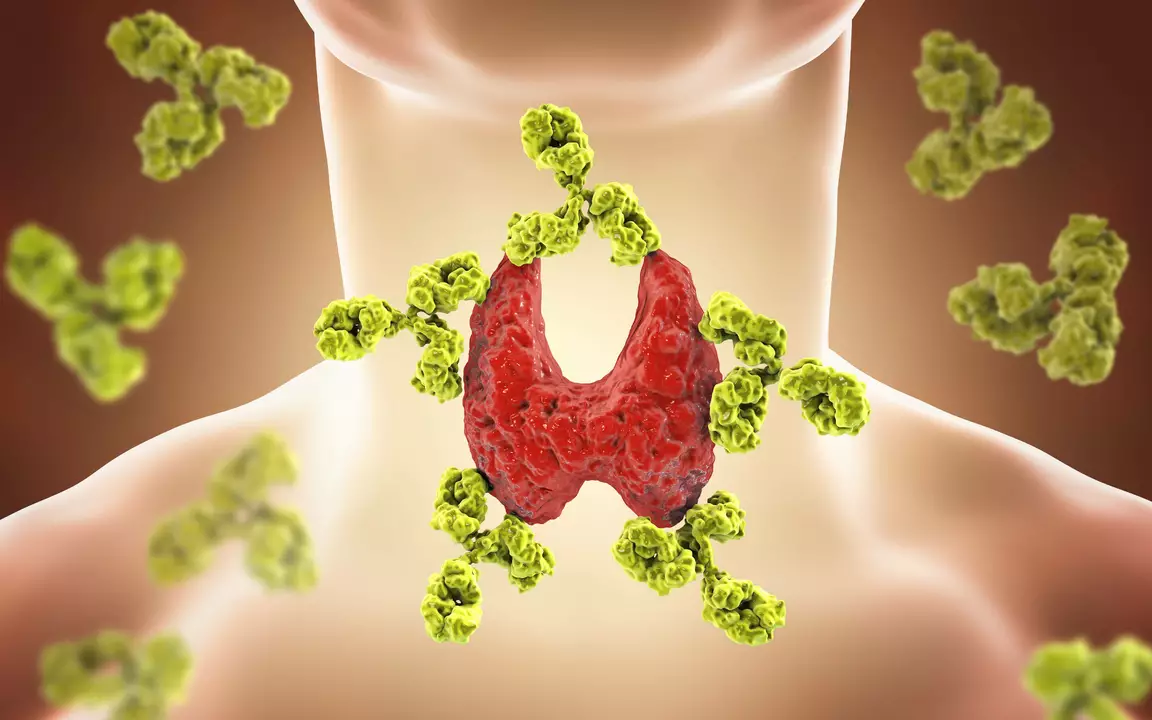Hashimoto's Disease: What to Watch For and How to Manage It
Feeling tired, cold, or slowed down for months? Hashimoto's disease is a common autoimmune cause of hypothyroidism where your immune system attacks the thyroid. Symptoms can sneak up slowly and look like everyday stress or aging. The good news: once diagnosed and treated, most people feel a lot better.
Diagnosis and Tests
Doctors usually start with a blood test. Key labs are TSH and free T4. High TSH with low or low-normal free T4 points to underactive thyroid. To confirm Hashimoto's, your doctor will check thyroid antibodies—anti-TPO and anti-thyroglobulin. Those antibodies show the immune system is involved. Sometimes an ultrasound of the neck is done if the doctor feels a lump or the thyroid looks odd.
If tests are borderline, expect repeat labs in 6–12 weeks or sooner if symptoms worsen. Keep a simple symptom diary (energy, weight, hair loss, constipation, mood) to show your doctor trends that labs alone might miss.
Treatment and Daily Management
First-line treatment is levothyroxine, a synthetic T4 hormone. Most people take one pill daily. Key tips: take it on an empty stomach 30–60 minutes before breakfast or at bedtime 3+ hours after eating. Avoid taking it with calcium, iron, or high-fiber meals—these cut absorption.
Your dose will be adjusted by repeating TSH around 6–8 weeks after starting or changing dose. Targets vary by age and health, so follow your doctor's target rather than a random number. If you’re pregnant or trying to conceive, doses often need to go up and labs are checked more often.
Can supplements help? Small studies show selenium may lower thyroid antibody levels for some people, but it's not a cure. Talk with your doctor before starting anything—too much selenium can be harmful.
Diet and lifestyle matter. There’s no single “Hashimoto’s diet,” but practical moves help: aim for balanced meals, manage constipation with regular fiber and fluids, and time fiber away from your thyroid pill. If you’re sensitive to gluten or have multiple autoimmune issues, a trial without gluten under medical guidance can be reasonable for some people.
Mental health and sleep deserve attention. Low mood and brain fog are real symptoms. Simple steps—consistent sleep, light exercise, and talking to a therapist or support group—make daily life easier while hormone levels stabilize.
Watch for warning signs that need urgent care: severe neck swelling, trouble breathing or swallowing, rapid heart rate, chest pain, or sudden weight changes. For less urgent issues, keep regular follow-ups, bring a list of symptoms, and mention other meds or supplements you take—many interact with thyroid drugs.
Hashimoto's is chronic but manageable. With the right tests, the right dose, and small daily habits—timing your pill, balancing diet, tracking symptoms—you can get back to feeling like yourself. If you're unsure about any step, ask your healthcare provider for clear, practical guidance tailored to you.
The Connection Between Hashimoto's Disease and Thyroid Cancer
In my recent research, I've discovered a significant connection between Hashimoto's Disease and thyroid cancer. Hashimoto's is an autoimmune disorder that attacks the thyroid gland, often leading to hypothyroidism. Studies have shown that individuals with Hashimoto's Disease are at a higher risk of developing thyroid cancer, specifically papillary carcinoma. It's crucial for those with Hashimoto's to have regular check-ups with their doctors and closely monitor their thyroid health. By staying vigilant and proactive, we can better manage our health and reduce the risk of developing thyroid cancer.
View more
